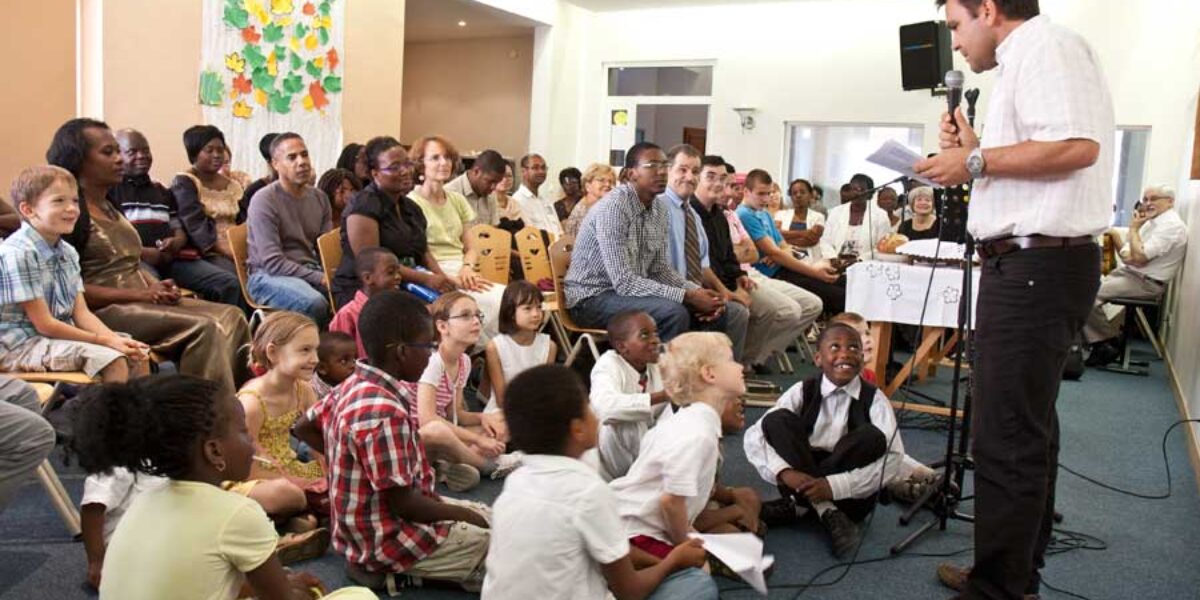This interview will be presented as part three in a three-part series.
Christ Seul: What is the role of worship leaders? What should their goals be? What should they avoid?
Janie Blough: The church community gathers to praise God and for its own edification. The function of the worship leader is to facilitate the participation of the entire church community in the worship experience so that worshipers experience both. Worship leaders should have pastoral gifts, knowing both the members of their congregation and their musical needs. Worship leading should not be viewed as a performance of a few individuals or a group of musicians, but should seek to encourage the participation of everyone. Preparing to lead worship should begin with prayer. The leader should be saturated with Scripture and reflection about the spiritual needs of the congregational body rather than the leader’s personal preferences.
CS: Testimonies often consist of people speaking of their personal experiences with God. What do you think of this element of worship?
JB: Whether prepared or spontaneous, testimonies have their place in worship. All are personal responses to what God is doing. Care must be taken that God’s action be the starting point, because the risk of testimonies is to talk only about oneself. We need to remember that God is the origin and source of all worship. Our worship is response to God’s revelation in Christ, so we first tell about what God has done, and then, and only then, comes our testimony, our response in praise to God’s action.
It is helpful to remember that our worship services are much more than “an extended moment of praise songs” and a sermon. For example, the offering is also a gesture of praise, an act that acknowledges that everything we have is a gift. We remember this by giving back a portion to God.
More than 30 different worship elements can be found in Scripture, as practiced by the early church: the reading of Scripture, signs and wonders, community prayers, intercessory prayers, confession of sins and reconciliation, the confession of faith, greetings and benedictions, the kiss of peace, prophecies, revelations and interpretation of what was revealed, healings, offerings … It would be a pity to reduce such worship diversity to simply singing praise songs and a sermon.
CS: What concrete proposals do you have to help churches develop a wider repertoire of songs that cover all the important themes of our faith?
JB: A congregation should evaluate its music repertoire to see if there are important biblical themes missing, and whether or not song content corresponds to our confession of faith. Singing different genres is something that can be learned. In the same way that we learn to love each other, we can learn to love each other “musically,” to “sing each other’s song” even if that song doesn’t particularly reflect our musical taste. The music of a congregation should reflect the local context and respond to the musical needs of its members. Practically speaking, and as some have already done, congregations can gather a collection of songs and hymns that are particularly meaningful to their context and congregational identity. This collection can be used a complementary source of songs in addition to the church hymnal. All styles of music can be drawn on and included: favorite old hymns, contemporary songs, praise songs, songs of lamentation and confession, and songs about justice, as well as songs from the global church.
And the reason for this? The older hymns help us to walk alongside our brothers and sisters who have sung before us, and strengthen our long ecclesiastical identity. These hymns take us back to the origins of the church. The newer songs help us to live in our own times with its melodies and rhythms. Songs of lamentation comfort and encourage us in difficult times. Songs of justice call us to live out God’s justice in this world. Songs from other countries help us to understand that Christian faith extends far beyond our national borders.
CS: Can we dream of the ideal worship service, where planning and spontaneity, well-known and new songs, personal and communitarian expressions of faith, reassurance and challenge, and all the elements we have discussed, are balanced? If not, what should we do about it?
JB: Yes, we can dream about it, but such worship can only exist at the end of time, when Christ himself is the worship leader, as described in the book of Revelation. In the meantime, we continue our walk from here to there. If there are frustrations, we must learn deeper about mutual submission and communitarian discernment. Sometimes, it’s all about learning to like something one doesn’t like, simply because it is good for our health. Metaphorically speaking, I may not like spinach, but I learn to eat it anyway because it is good for my health.








